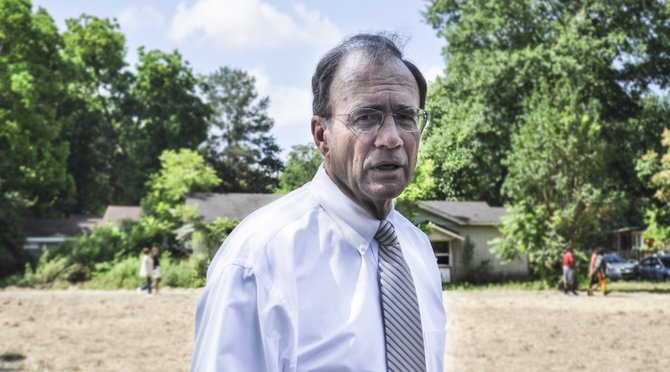Mississippi Secretary of State Delbert Hosemann has been a vocal advocate for the state's voter ID law. Photo by Trip Burns.
State requirements for citizens to present government-issued identification suffered several setbacks this week.
Two of those came from federal courts that ruled against voter-ID laws in Wisconsin and Texas; the other resulted from a congressional research agency that confirmed what civil-rights groups have claimed all along, that voter ID in some states are barriers to African American and youth voters.
First, the U.S. Supreme Court prohibited Wisconsin from enforcing its voter ID. The page-long order did not specify a reason for the ruling, but legal experts speculate that the fact that Election Day is less than one month away had a lot to do with it.
The widely read SCOTUS blog noted that dissenting Justices Samuel A. Alito, Jr., Antonin Scalia and Clarence Thomas conceded that "there is a colorable basis for the Court's decision due to the proximity of the upcoming general election."
Alito, an appointee of President George W. Bush, wrote that he was particularly troubled "that absentee ballots have been sent out without any notation that proof of photo identification must be submitted."
Meanwhile, on the same day as the Supreme Court ruling, a federal judge in Texas also struck down that state's voter ID law, saying it "creates a substantial burden on the fundamental right to vote, has a discriminatory effect and purpose, and constitutes a poll tax."
In her 147-page opinion, U.S. District Judge Nelva Gonzales Ramos, an appointee of President Barack Obama, said "anti-Hispanic sentiment" permeated Texas' 2011 legislative session, when Senate Bill 14, which created the state's voter ID law, passed.
"Legislators' knowledge that SB 14 would clearly impact minorities disproportionately and likely disenfranchise them shows that SB 14 was racially motivated," she wrote.
Also, earlier this week the Government Accountability Office released findings of a study of voter-ID laws in 17 states, including Mississippi. The report indicates that some of the the laws impose hidden costs on voters, which may drive down turnout, especially among African Americans and voters under age 23.
Sean Young, a staff attorney with the Voting Rights Project of the ACLU, which submitted a brief with the Supreme Court about Wisconsin's voter ID requirement, said the decision affirms the ACLU's position
"We argued that implementing a voter-ID law in Wisconsin at the last minute would cause widespread chaos and disenfranchisement," Young said.
Young said neither of the rulings is immediately binding on Mississippi, whose voter ID law went into effect in June for congressional party primaries, is as strict as those in Texas and Wisconsin.
Texas plans to appeal the district court's ruling to the 5th U.S. Circuit Court of Appeals, which also covers Mississippi.
Read an archive of the JFP's award-winning coverage of voter ID at jfp.ms/voterid.



Comments